- Home
- Helen Forrester
Yes, Mama Page 3
Yes, Mama Read online
Page 3
She would have to find stockings and shoes for herself, and she wondered if her mother could prevail on the pedlar to let her have them on two months’ credit. Her first month’s wages would be appropriated by Mrs Tibbs, the cook-housekeeper, as her fee for getting her the job. As she thought about this, she replaited her hair and wound it into a neat bun at the back of her head.
When Fanny came back up the stairs, carrying a pair of slop pails in which to remove the bath water, she gaped at the newly created Nanny. ‘Well, I never,’ she exclaimed. ‘You look proper pretty.’
Her spirits revived, Polly gave the girl a playful cuff about the head for her impudence. Then she asked, ‘Wot time is servants’ meals?’
‘Breakfast at six-thirty, dinner ’alf-past eleven, tea at five. If Ma Tibbs is in a good mood, you get a bit o’ somethin’ afore bedtime – depends on wot’s left from the Master’s dinner. The Mistress isn’t mean, but Ma Tibbs is. She takes food to her sister’s house.’
‘I’m awfully hungry,’ admitted Polly, her voice trembling slightly.
‘Oh, aye. You could get a mug o’ milk or ale anytime you want – and I suppose I’ll ’ave to bring it up.’
She plunged her slop pail into the scummy bath water.
‘Bring me some milk and a piece of bread now,’ wheedled Polly. ‘There’s a pet. I’m clemmed.’
Fanny glanced up at her. ‘And the baby not even born yet?’ she teased.
‘Come on, Fanny. I’ll share it with yez.’
‘Well, seein’ as I know yez, I’ll ask for it.’
Chapter Three
I
At half-past eleven that warm May night, Alicia Beatrix Mary yelled her first impatient complaint in this world.
Dr Willis declared her a healthy child and Mrs Macdonald gave her her first bath. To ensure a flat, well-healed navel, a flannel binder was wound tightly round her stomach.
On a dresser lay a pile of baby clothes originally prepared for a brother, who, eight years before, had died within a month of his birth. Mrs Macdonald picked up a cotton napkin and one of terry towelling and enclosed Alicia in these. Then the child’s tiny arms were pushed into a flannel vest. A long cotton petticoat followed and then a flannel one, each tied at the front. Over all this went a fine white baby gown, frilled and embroidered and hemstitched in an Islington sweat shop. The long petticoats and gown were folded up over the protesting little feet, and she was finally wrapped in a warm, white shawl crocheted for her by her mother’s spinster friend and lifelong confidante, Miss Sarah Webb.
Almost smothered by the amount of clothing, Alicia carried her complaints to Humphrey Woodman.
Humphrey had been called from his booklined study by Dr Willis to inspect the new addition to his household and was uncertain, at first, whether he should go up. He had been startled when Maisie, the parlour-maid, had told him that his wife had commenced her labour. He had hoped to the last that his wife would miscarry, so that he would not have to face directly the fact of her infidelity.
Maisie was waiting, politely holding the door open for him, so he slowly pushed himself away from his desk and got up. As he straightened his velvet smoking jacket and gravely marched upstairs, a slow anger burned in him. He did not care a damn what Elizabeth did as long as she was discreet; but having a child at the age of forty was, alone, enough to interest the gossips and raise speculation.
Since Dr Willis and Mrs Macdonald were present, he kissed his wife dutifully upon her white cheek, and, afterwards, went to inspect the minute bundle lying in the frilly, draped cot which had served all his children.
His breath began to come fast as he gazed at the crumpled red face, and he seethed inwardly; at that moment he would have liked to murder Elizabeth and her lawyer, Andrew Crossing, whom he was fairly sure was the child’s father. Yet, in a sense, he also felt defeated. There was no question of his divorcing his wife; he must maintain his carefully built-up image of a well-respected city businessman with an impeccable home-life. To maintain society’s rigid proprieties, he would have to accept the baby as his. He knew it and he guessed that his wife was counting upon it – the sanctimonious bitch!
At the back of his mind, too, was the need to protect the future of his daughter, Florence, who was standing by him, bending over the little cot and tenderly touching her newborn sister with a careful finger. Florence was herself seven months pregnant. She was the wife of the Reverend Clarence Browning, a gentleman with small private means bent on a career in the church. A divorce between her parents, or even a separation, might put an end to his hopes of obtaining a bishopric one day.
Humphrey loved Florence. She was the only person to whom he showed any real affection. Her marriage portion had been as handsome as he could make it. Though at this moment he itched to beat her mother to death, he knew he would never make a single move that might injure his little Flo. When Alicia’s time came, however, he thought savagely, she would not get a penny out of him.
’isn’t she lovely, Papa?’ cooed Florence.
Humphrey continued to gaze expressionlessly at the crabbed little face, as he said politely, ‘Yes, my dear.’
While Dr Willis went to use the Woodmans’ magnificent new water closet, Mrs Macdonald stood, hands folded over her apron, at the foot of the bed, waiting for the series of visitors to pass. She would stay to nurse Elizabeth for a couple of days, before handing her over to her friend, Sarah Webb, to be cared for during the rest of her ten days’ lying-in.
As Humphrey turned to leave the room, he felt suddenly drained. His anger began to subside and he thought longingly of his Mrs Jakes. Most of his friends had a little woman tucked away somewhere in the town, and Mrs Jakes was his woman. Her well-patronized sweets and tobacco shop, on the corner of one of the crowded streets behind his office in Water Street, offered a fine excuse for visiting her. His need for tobacco for his pipe and the occasional gift of sweets for his children accounted easily for his going there. When the shop was empty of customers, he would slip behind the counter and through the door to her living-quarters. She would send her dull, thick-waisted daughter to tend the shop, lock the intervening door and draw the lace curtains over the window in it. They could be very cosy together behind the lace-draped door, sitting in front of her blazing coal fire; or they could go up the stairs which led to her bedroom above. It was a discreet, mutually agreeable arrangement. Why could not Elizabeth have been equally circumspect? he fumed.
Now, ignoring his wife, he said goodnight to Mrs Macdonald and told Florence to go to bed soon. Mrs Macdonald, much experienced in these matters, drew her own conclusions.
Downstairs, Humphrey waited in his study until the doctor should be shown in. Dr Willis, when he did come, accepted a glass of port and lifted it in a toast to the newborn. Humphrey bent his head slightly in acknowledgement, but he did not raise his glass. As Dr Willis drank from his glass, his eyebrows rose slightly – so his own wife’s gossip about Elizabeth Woodman had a sound basis. Woodman was showing none of the jovial relief at a safe delivery that most men exhibited. He hastily finished his wine, put down his glass and said that he would call again the following morning, to check both mother and child.
II
Upstairs, Mrs Macdonald was deferentially solicitous and wondered privately who would pay her bill. She said, as she fussed round her patient, ‘Miss Webb wondered if you would like a bite to eat, Ma’am?’
Sarah Webb, being a spinster, would not visit her friend until the morning; not having been married, she was supposed, officially, not to know how babies arrived. The following day seemed to her to be a polite time to come up. She had, meanwhile, taken over the housekeeping, and Mrs Tibbs had had a long, uncomfortable evening as Sarah began to cope with a kitchen unused to being visited by its mistress.
Florence reinforced the suggestion of food. She said, ‘Yes, Mama, you should take something to eat. You have to keep up your strength.’ Florence was deadly tired, her bundly body aching in every direction, but she spoke brig
htly to her mother.
‘Very well, dear,’ Elizabeth responded wearily. ‘Tell Mrs Tibbs to make me a plain omelette and toast – and some Madeira to drink.’
Mrs Macdonald pulled at the bell rope.
Elizabeth continued to talk to her daughter. ‘I have a wet-nurse for the child,’ she told her with a wan smile. ‘I don’t propose to feed her myself. At my age …’
Florence nodded understandingly. She had not been informed of her mother’s pregnancy until a week before the birth. Elizabeth had not felt able to tell a pregnant daughter that she was expecting an infant. At forty, it was indecent to be in such a situation; she herself had not expected it to happen.
As her mother’s figure burgeoned under the flounces and heavy drapery of her elaborate dresses, the situation had been clear to Florence for some time. She was, however, much too well brought up to mention the subject until her mother cared to bring the matter up and she expressed suitable surprise when Elizabeth suddenly blurted out that she would be brought to bed within the month. She had been much alarmed that her mother would not survive and had prayed earnestly each night that she be safely delivered. Now, she thought, she must pray for herself.
As if the midwife divined her thoughts, she turned towards her and smiled faintly, ‘You look very well, if I may say so, Ma’am. You’ll soon know the joy of your own wee babe in your arms.’ There was oily comfort in every word.
‘Thank you, Mrs Macdonald,’ responded Florence graciously, ‘With your help, I’m sure I will.’
In answer to the bell, Maisie, the elderly parlour-maid, arrived and was instructed regarding a meal.
‘Tell Mrs Ford she may now come to remove the baby,’ Elizabeth told the maid. ‘I trust a fire has been made in the nursery – and in baby’s bedroom?’
‘Oh, yes, Ma’am. Fanny’s bin watching both fires ever since atternoon.’
Up in the nursery, Polly, lulled by the heat, had gone to sleep in an old easy chair set by the fireplace. In the glow of the coals, she looked softly pretty, tidier, more clean than she had ever been in her life.
When Fanny clumped in with yet another hod of coal, she woke up with a start.
‘Coom on, now,’ Fanny commanded her. ‘The Missus wants you to take the baby.’ She dumped the heavy coal hod into the fireplace, picked up a pair of tongs and lifted a couple of lumps of coal on to the blaze. ‘Maisie and Rosie’ll bring the cot up.’ She yawned enormously, her stunted little body stretching as she did so. ‘Aye, I’m that tired. Seems to me as if none of us is goin’ to get to bed tonight. And I got to be up at five, ’cos ould Tibbs raises Cain if she don’t have a hot oven by six o’clock, ready to put the bread in.’
Polly got up and stretched. Then she peeked into the mirror over the dresser, to check that her hair was still neat and her cap on straight. ‘Fancy having a mirror,’ she thought to herself gleefully. She picked up the candle from the table.
‘Aye, don’t leave me in the dark,’ protested Fanny. She hastily tipped the rest of the coal into a brass coal scuttle at the side of the hearth. ‘It’s proper ghosty up here, what with Mr Charles and Mr Edward gone away and not usin’ the rooms on the other side o’ the passage.’
Polly waited for the little skivvy and then, carrying the candle, led her down the dark staircase, the coal hod clanking like chains behind her.
On the floor below lay Elizabeth’s bedroom and beside it the dressing-room in which Humphrey had slept for the last year or so. Also on this floor, lay Florence’s old bedroom, a guest room and the main drawing-room; the latter was shrouded in dust sheets, because Elizabeth could not entertain in the last months of her pregnancy; it was not the thing. At the back of the house, on this same floor, was Elizabeth Woodman’s latest status symbol, a brand new water closet and a handsome adjoining bathroom with hot and cold water which belched from shining brass taps.
‘You’re not allowed to use the water closet,’ Fanny warned Polly, as they passed it. ‘You got to come down to the closet outside the back kitchen door – or you can use a chamber-pot and empty it yourself down there. I ’aven’t got no time to be running up and down with a slop pail to clear it for yez. There’s an old slop pail in the nursery cupboard if you want to use it.’
Polly reached Elizabeth’s door at the same time as Maisie was about to enter, so she followed her in. They both stood just inside the doorway, hands folded, eyes down, waiting for orders.
Elizabeth was sitting up in bed, wrapped in a pink shawl, her hair plaited neatly over each shoulder. She was feeling better and, though her eyes were black-ringed, some of her normal high colour had returned to her cheeks; the birth had, in fact, been quite an easy one. She fully expected that, thanks to Mrs Macdonald’s modern ideas of well-scrubbed hands, boiled aprons and sheets, she would be spared that plague of new mothers, childbed fever.
Replete with omelette and half a bottle of Madeira, her breasts bound tightly by Mrs Macdonald to prevent the flow of milk, all she wanted now was that the child be taken away, so that, as much as possible, she could forget it. She hoped, also, when trouble with her husband had blown over, that she could be reunited with Andrew Crossing, only in a more private place than on her drawing-room settee.
‘Polly,’ she snapped at the trim, black-haired wet-nurse. ‘Take the baby upstairs. See that it is fed every three or four hours and has its napkin changed frequently to keep it dry.’ She turned to Maisie. ‘Take the tray away. That will be all for tonight.’
‘Thank you, ma’am,’ Maisie replied, took the tray and fled thankfully to her bed. Polly approached the cradle cautiously and picked up the tiny bundle which was Alicia Beatrix Mary. The infant opened its eyes and whimpered.
‘Polly.’
‘Yes, ’m?’
There is a good supply of clothing in the chest of drawers in the nursery. Fanny will remove any washing including your own. She will also bring up your meals. The washerwoman will come twice a week. See that the dirty clothes and sheets are down in the wash cellar by six o’clock every Monday and Thursday morning.’
Polly bobbed a small curtsey to indicate agreement.
‘I have instructed Mrs Tibbs to feed you well and let you have as much milk as you can drink.’
Having met Mrs Tibbs, Polly did not have any great hope of these instructions being followed properly. She whispered, however, a faint ‘Thank you, ma’am.’ She allowed herself a small shivering sigh – it had been a long and eventful day for her – and then asked, ‘What’s baby’s name, ma’am?’
‘Alicia Beatrix Mary,’ replied Elizabeth, having decided that it was better to name the child herself, rather than ask Humphrey his opinion. Though she would not have liked to admit it, there was the thought in the back of her mind that, like its baby brother, it might die within the month, anyway; and that would solve a lot of her problems.
Andrew had assured her that since she and Humphrey lived together the child was legally his, unless he repudiated it. Nevertheless, she supposed she would have to go herself to register its birth, as soon as she felt well enough; Humphrey was hardly likely to do anything about putting his name on the birth certificate. She must also write a note to Andrew, she reminded herself, telling him of Alicia’s birth; she could say that she wanted to alter her Will slightly to include a small legacy to the new baby. She sighed, and hoped he would come soon.
‘You may go,’ she told Polly, patiently standing in front of her with the baby in her arms.
III
Unaware of the inconvenience her arrival had caused, Alicia Beatrix Mary was carried up to the attic nurseries. To Polly, the child was sent by the Holy Mother herself to replace the little boy she had lost and to comfort her in her widowhood. For her part, Alicia learned to turn to Polly for mothering; it was Polly’s voice she knew first and Polly’s face that she first recognized.
Chapter Four
I
Alicia had barely learned how to suck, when Elizabeth, after ten days’ of lying-in, descended one afternoon
to the pleasant, sunny morning-room on the ground floor. She was escorted solicitously down the stairs by her friend, Sarah Webb, and was met by her elder daughter, Florence, in the little sitting-room.
As her own confinement drew near, Florence looked white-faced and drawn. She dreaded the birth of her baby, because she had no idea how it would make its way into the world. There did not seem to be an aperture big enough to give it access! She wondered if she would split down the middle, like a pea pod giving up its peas, and the idea terrified her. She was much too afraid of her stout, dogmatic husband, the Reverend Clarence Browning, to ask him. Having been taught nothing about sex and having been horrified when Clarence took her on her honeymoon, she felt that life was vulgar enough, without giving him further opportunity for lewd remarks and disgusting behaviour. She simply did not believe frustrated Clarence’s assurance that their sex life was normal.
She was relieved to see her mother looking very elegant in a copper-coloured gown with the hint of a train at the back and a velvet collar edged with cream lace. It was comforting to realize that her mother had always survived childbirth, despite whatever ordeals it presented.
With the aid of her friend and her elder daughter, Elizabeth was gently eased into an armless easy chair near her work table in the window. Florence had brought a bunch of fat, pink roses from her own garden and had set them in a silver bowl on the table. She had also thoughtfully placed her mother’s workbasket by her chair. Her mother still followed the old custom of making and embroidering her own petticoats and drawers, though Messrs George Henry Lee, a fashionable shop in the town which made her dresses, cloaks and hats, would have been happy to undertake the work for her.

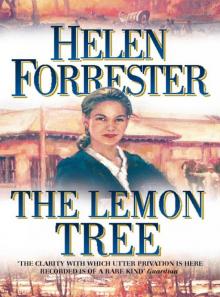 The Lemon Tree
The Lemon Tree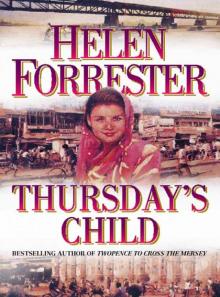 Thursday's Child
Thursday's Child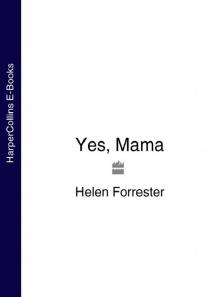 Yes, Mama
Yes, Mama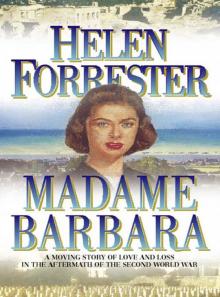 Madame Barbara
Madame Barbara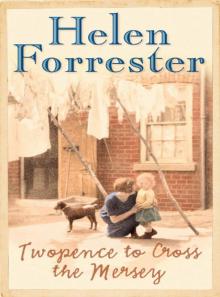 Twopence to Cross the Mersey
Twopence to Cross the Mersey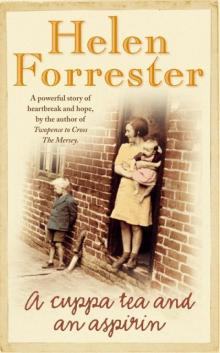 A Cuppa Tea and an Aspirin
A Cuppa Tea and an Aspirin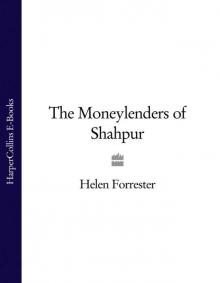 The Moneylenders of Shahpur
The Moneylenders of Shahpur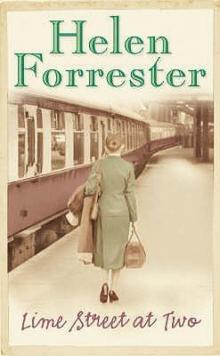 Lime Street at Two
Lime Street at Two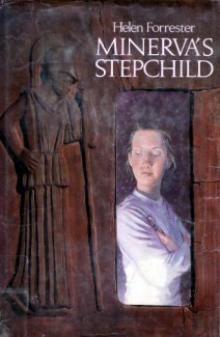 Minerva's Stepchild
Minerva's Stepchild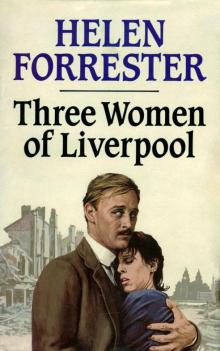 Three Women of Liverpool
Three Women of Liverpool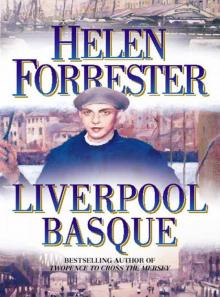 The Liverpool Basque
The Liverpool Basque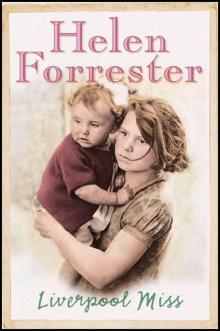 Liverpool Miss
Liverpool Miss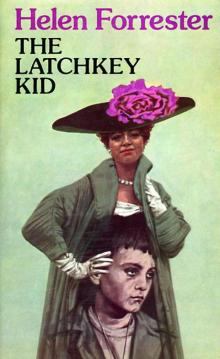 The Latchkey Kid
The Latchkey Kid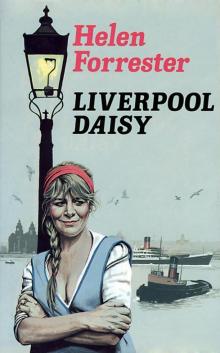 Liverpool Daisy
Liverpool Daisy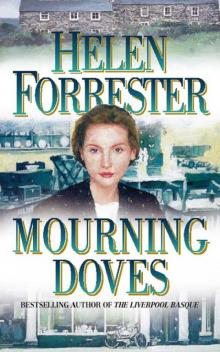 Mourning Doves
Mourning Doves